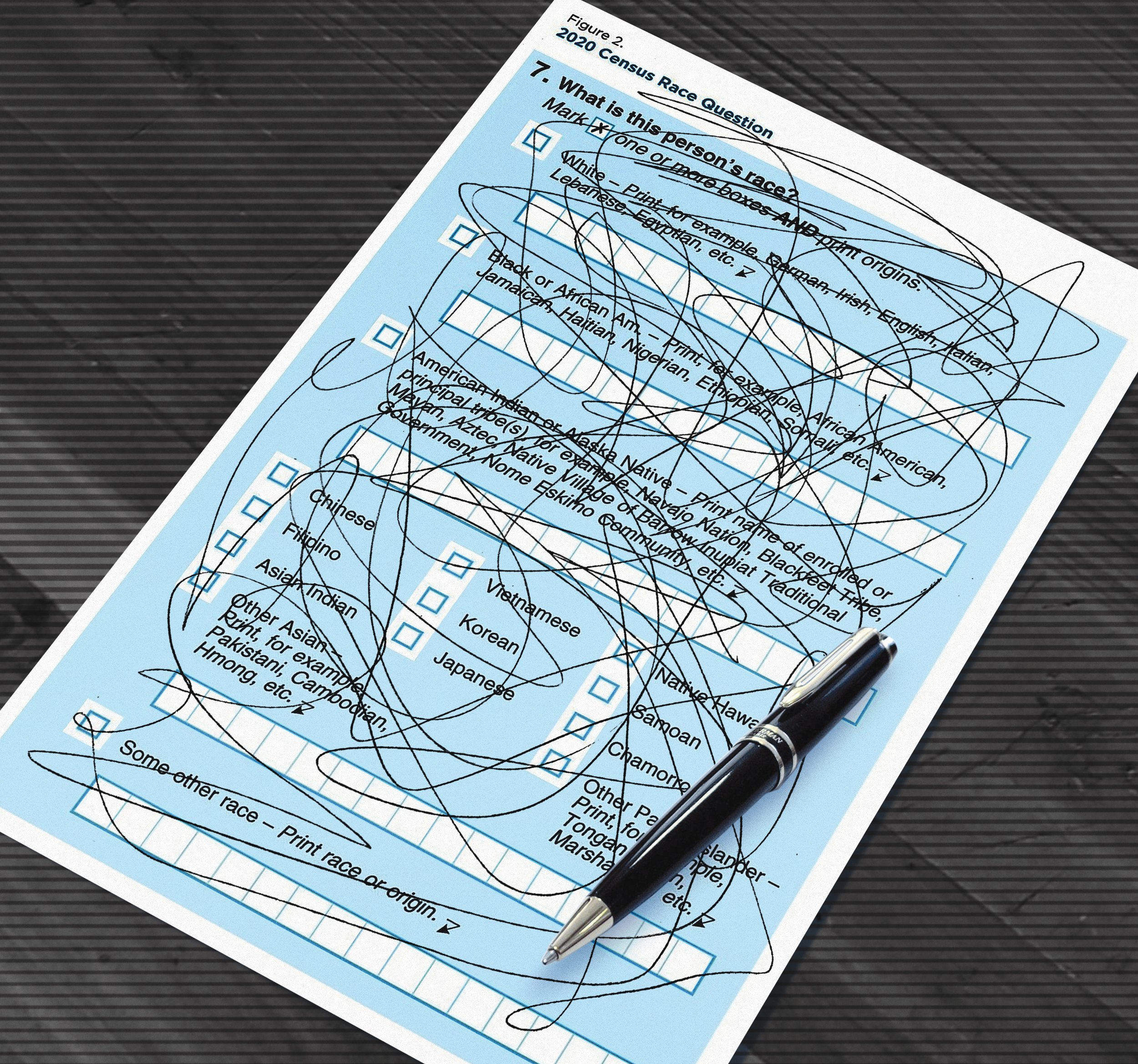The Whole Truth on Critical Race Theory: A Primer
by Jack R. Johnson 04.2022
Graphic by Doug Dobey
Maybe the best way to define critical race theory is with a specific example. In the 1930s, government officials drew lines around areas deemed poor financial risks, often explicitly due to the racial composition of the inhabitants. Following the blueprint of these red-lined areas, banks subsequently refused to offer mortgages to folks located there.
If you ever wondered why poor areas are poor, this is a good explanation. It’s also explains why those poor areas happen to be majority Black. Today, those same patterns of discrimination live on through policies that superficially appear ‘race-blind’ but in fact perpetuate inequality. Simple things like single-family zoning prevents the building of affordable housing in advantaged, majority-white neighborhoods and, thus, stymies racial desegregation efforts.
Critical Race Theory is a way to explain the legal and social ramifications of this kind of activity. According to Education weekly, the core idea is that race is a social construct, and that racism is not merely the product of individual bias or prejudice, but also something embedded in legal systems and policies.
The basic tenets of critical race theory, or CRT, emerged out of a framework for legal analysis in the late 1970s and early 1980s. From the American Bar Association, here are a few basic agreed upon principles: Recognition that race is not biologically real but is socially constructed and socially significant.
Acknowledgement that racism is a normal feature of society and is embedded within systems and institutions, like the legal system, that replicate racial inequality.
Rejection of popular understandings about racism, such as arguments that confine racism to a few “bad apples.” i.e., it’s more than an individual problem, it’s a systemic problem.
Recognition of the relevance of people’s everyday lives for information gathering and scholarship. Oral histories have as much to tell us about racism as any academic paper.
Contra Fox News and many of the conservative pundits and politicians railing against critical race theory, it’s almost never taught in high school, and is a relatively specialized course of study in colleges or universities. The ABA also notes that CRT “is not a diversity and inclusion “training” but a practice of interrogating the role of race and racism in society.”
However, certain features of CRT have made their way into the popular culture and culture wars are always, at some level, battled out within our schools. Fox News, for example, has mentioned CRT a total of 4,027 times (as of 2/21/2022).
In a matter of months, Republican lawmakers in nearly half of the states have proposed legislation to limit the teaching of concepts such as racial equity and white privilege. It’s important to note that their definition of critical race theory is incredibly broad and vague, "Any anti-racist effort is being labeled as critical race theory,” said Jonathan Chism, assistant professor of history at the University of Houston. In many ways the vague definition parallels some of the ridiculous excesses of the McCarthy era in which anything that even hinted at better working conditions or a communal ideology was quickly labeled communist.
“Many that are condemning critical race theory haven’t read it or studied it intensely. This is largely predicated on fear: the fear of losing power and influence and privilege,” Chism said. Additionally, of course, is the age old effort to privatize the public school system through charter schools and so called choice vouchers. Demonizing vaguely defined critical race theory gives this effort a PR boost. It’s no accident that Betsy Devos recently jumped on board the anti-CRT train with an editorial in the New York Post decrying critical race theory as “a Trojan horse used to introduce Marxist concepts into classrooms” (um, no) all the while promoting privatization, “parents should have the power to take the tax dollars allocated for their child to different schools.” From the school privatization perspective, demonizing critical race theory is a win/win. The only losers, of course, are the parents who will ultimately pay more, and the children who will learn less about both their world and their history.

